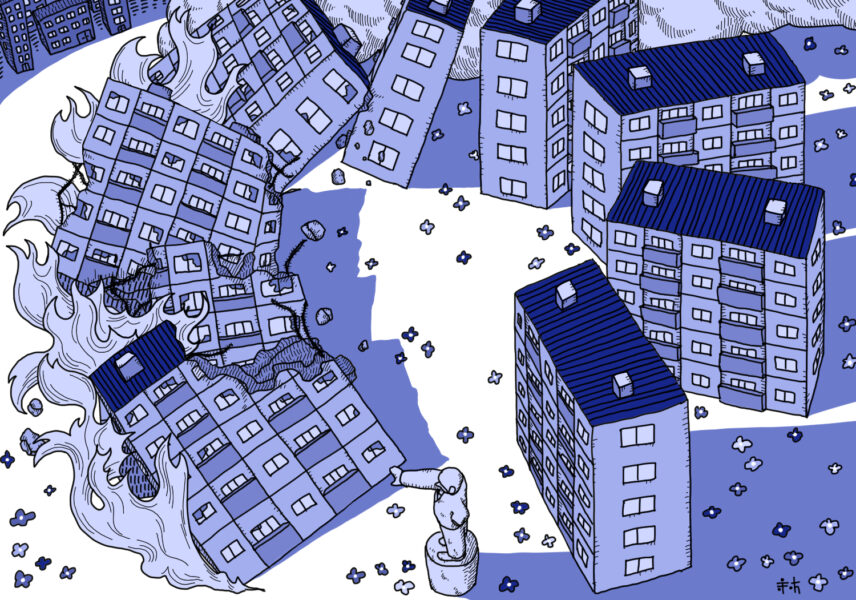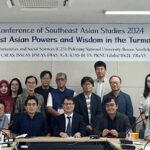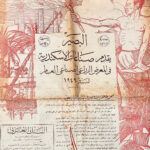Chika Obiya (Modern History of Central Asia, Central Asian Area Studies)
Recently, I had the opportunity to sit down with a woman from Belarus who is involved in volunteering to support Ukraine. We met at a gathering of Japanese people who understand Russian, and the first thing she said was, “I would like to not speak in Russian at all. But since there is no other way to communicate with you all here, I have no choice. I’ll speak in Russian.” Indeed, she spoke flawless and beautiful Russian.
More than two years and nine months have passed since Russia’s invasion of Ukraine, and the war continues to this day. Since first hearing the news of the invasion, I have been unable to shake the feeling of having swallowed a heavy stone. Reflecting on why this feeling persists, I realize that it’s not only due to the reports of unimaginable atrocities committed by the Russian military in Ukraine or the increasing repression within Russia itself. It’s also because the world of Russian-speaking communities without clear ethnic boundaries—an expanse shaped undeniably by the rule of the former Russian Empire and the Soviet Union, of course—has been fractured and divided in ways that seem irreparable. Coming to terms with this reality has been deeply distressing for me.
I started engaging in Central Asian studies through my experience of learning Russian, and I too have benefited from the Russian language in a corner of the Russian-speaking world. In Uzbekistan, the region of my research focus in the former Soviet Central Asia, my dear friend, whom I regard as an elder sister, is a Russian speaker born in Ukraine with a bit of Belarusian roots. Yet, even when I reflect on it, we have never really discussed what “ethnicity” she identifies with, and it has never seemed necessary to do so. Another friend is half Ukrainian and half Armenian, but Russian is his mother tongue, and he identifies as Russian. There are countless such examples, and the diversity is overwhelming. However, as the rift caused by the war deepens, we are inevitably forced to choose between Ukraine and Russia.
During this period, numerous works on Ukraine have been published, but one that has left a particularly profound impression on me is the June 2022 special issue of Gendai Shiso (Contemporary Thought), titled “Questioning from Ukraine: History, Politics, and Culture.” This comprehensive feature issue is dedicated entirely to the topic. It includes translations of two “voices” from Ukraine, a dialogue between Nobuaki Shiokawa and Yoshiro Ikeda, two leading Japanese scholars on the Soviet Union and Russia, 38 essays, and an “anthology” section featuring four key texts to understand the Ukrainian world, accompanied by detailed commentary from the translator. The sheer depth and breadth of this publication makes it a significant resource.
The 38 essays in the issue were written not only by experts on Ukraine and Russia, but also by researchers from diverse fields, such as Central and Eastern European studies, Mongolian history and studies, Middle Eastern studies, European studies, Japanese studies, international politics, and gender and feminist studies. The contributors include not only Japanese, but also authors from Russia, Belarus, and France.
If area studies are about examining the world through the lens of a specific region and, conversely, understanding the region through a global perspective, this special issue embodies a deeply area studies-oriented approach. At the same time, it conveys the profound power of the humanities in addressing the Ukraine war—a power that seems to stem from the determination and sense of mission shared by the contributors. This sentiment resonates throughout the collection, highlighting the enduring relevance of the humanities in times of crisis. Tadashi Nakamura, a prominent scholar of Russian literature, describes this as “resistances or protests against the dichotomy that imposes division and oppression under the guise of universality or justice, no matter how minor these acts may seem” (p. 66).
Thinking of those who endure the hardships of war and oppression, we must deeply appreciate being in an environment where we can easily access such treasure troves of knowledge. It is a stroke of fortune that should not be taken for granted.
(Illustration by Atelier Epocha)
This article is also available in Japanese. >>
「ウクライナ戦争を語る人文学の底力」
(帯谷知可)






